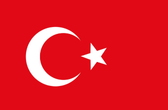
Call 0330 880 3600 Calls may be monitored or recorded. Opening Times.
- TRAVEL INSURANCE
- COVID-19 COVER
- More Options
- Help & Advice
- Existing Customers

Call 0330 880 3600 Calls may be monitored or recorded. Opening Times.

Need help?
UK Customer Services0330 880 3600*
Open Monday to Friday 9:00am to 6pm, Saturday 8:30am to 4pm and closed Sundays.
*Calls are recorded for training and quality purposes.

Official name: Republic of Türkiye
Capital city: Ankara
Languages spoken: Turkish, Kurdish
Population: Around 85 million
Currency: Turkish lira (TRY)
Time zone: GMT+3
Driving side: Right
Climate: Hot, dry summers along the coast, cooler inland, and snowy winters in the east
Türkiye bridges Europe and Asia, offering a mix of Mediterranean beaches, bustling bazaars, and rich history. Istanbul dazzles with the Hagia Sophia and Grand Bazaar, Cappadocia amazes with cave hotels and hot-air balloon rides, while the Turquoise Coast tempts with warm seas and sun-soaked resorts. It’s one of the world’s most versatile destinations.
Travellers should note that terrorist attacks and political unrest have occurred in Türkiye, particularly in major cities and near the Syrian border. Demonstrations are common and can turn confrontational. Visitors should avoid large gatherings, keep an eye on local advice, and stay clear of border areas in the southeast.
Türkiye is bordered by eight countries, including Greece, Bulgaria, Syria, Iraq, and Iran, with coastlines on the Mediterranean, Aegean, and Black Seas. The west is fertile and heavily populated, the central plateau is semi-arid, and the east is mountainous. Earthquakes are a risk in some areas.
Istanbul Airport (IST) is the main international hub, with Antalya, Izmir, and Ankara also receiving international flights. Türkiye has an excellent domestic flight network, fast intercity buses, and trains linking major cities. Highlights include Ephesus, Pamukkale’s travertine pools, Cappadocia’s rock formations, and the beaches of Antalya and Bodrum.
UK nationals can travel to Türkiye without a visa for stays of up to 90 days in any 180-day period. Passports should be valid for at least six months. The British Embassy is in Ankara, with consulates in Istanbul and Izmir.
The Turkish lira (TRY) is the local currency, though euros, pounds, and US dollars are often accepted in tourist areas. ATMs and card payments are common in cities, but cash is useful in smaller towns. Inflation has made prices volatile, so budgeting can be tricky.
Healthcare in major cities and tourist areas is generally good, with private hospitals offering high-quality care. Rural areas have fewer facilities. Travel insurance is essential to cover medical costs. Tap water isn’t recommended for drinking — bottled water is the safer option. Summers can be very hot, so sun protection and hydration are a must.